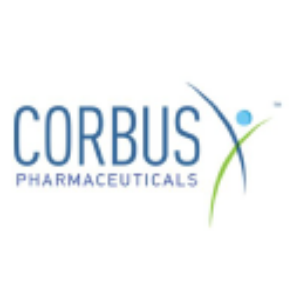Corbus Pharmaceuticals Announces FDA Clearance of IND Application for its anti-αvβ8 monoclonal antibody (CRB-601)
- CRB-601 is designed to block the activation of latent TGFβ in the tumor microenvironment
- Phase 1 clinical study set to commence H1 2024
- Pre-clinical data presented demonstrates robust anti-tumor activity in solid tumor models
NORWOOD, Mass., Jan. 09, 2024 (GLOBE NEWSWIRE) -- Corbus Pharmaceuticals Holdings, Inc. (NASDAQ: CRBP) (“Corbus” or the “Company”), a precision oncology company with a diversified portfolio, today announced the U.S. Food and Drug Administration (FDA) has cleared the investigational new drug application of CRB-601, a potentially best-in-class TGFβ blocking monoclonal antibody targeting the integrin αvβ8. Pre-clinical data presented at the 38th Annual Meeting of the Society for Immunotherapy of Cancer (SITC) demonstrates CRB-601 overcame tumor immune exclusion and enhanced the activity of immune checkpoint inhibitors in vivo. The Company expects to enroll the first participant in a Phase 1 study in the first half of 2024.
“Pre-clinical data generated to-date demonstrates that CRB-601 has robust anti-tumor activity as monotherapy and in combination with anti-PD-1 therapy in a variety of solid tumors exhibiting a range of sensitivities to PD(L)-1 targeted therapy,” said Yuval Cohen Ph.D., Chief Executive Officer of Corbus. “CRB-601 blocked latent TGFβ activation and enhanced immune cell penetration into the tumor microenvironment in pre-clinical models. We believe this mechanism of action is complimentary to the effects of anti PD(L)-1 therapy leading to enhanced combinatorial efficacy. We look forward to initiating our Phase 1 First-in-Human trial of CRB-601 and anticipate enrolling the first participant in the first half of this year.”
About Corbus
Corbus Pharmaceuticals Holdings, Inc. is a precision oncology company with a diversified portfolio and is committed to helping people defeat serious illness by bringing innovative scientific approaches to well understood biological pathways. Corbus’ pipeline includes CRB-701, a next generation antibody drug conjugate that targets the expression of Nectin-4 on cancer cells to release a cytotoxic payload, CRB-601, an anti-integrin monoclonal antibody which blocks the activation of TGFβ expressed on cancer cells, and CRB-913, a highly peripherally restricted CB1 inverse agonist for the treatment of obesity. Corbus is headquartered in Norwood, Massachusetts. For more information on Corbus, visit corbuspharma.com. Connect with us on Twitter, LinkedIn and Facebook.
Forward-Looking Statements
This press release contains certain forward-looking statements within the meaning of Section 27A of the Securities Act of 1933 and Section 21E of the Securities Exchange Act of 1934 and Private Securities Litigation Reform Act, as amended, including those relating to the Company's restructuring, trial results, product development, clinical and regulatory timelines, market opportunity, competitive position, possible or assumed future results of operations, business strategies, potential growth opportunities and other statement that are predictive in nature. These forward-looking statements are based on current expectations, estimates, forecasts and projections about the industry and markets in which we operate and management's current beliefs and assumptions.
These statements may be identified by the use of forward-looking expressions, including, but not limited to, "expect," "anticipate," "intend," "plan," "believe," "estimate," "potential,” "predict," "project," "should," "would" and similar expressions and the negatives of those terms. These statements relate to future events or our financial performance and involve known and unknown risks, uncertainties, and other factors on our operations, clinical development plans and timelines, which may cause actual results, performance or achievements to be materially different from any future results, performance or achievements expressed or implied by the forward-looking statements. Such factors include those set forth in the Company's filings with the Securities and Exchange Commission. Prospective investors are cautioned not to place undue reliance on such forward-looking statements, which speak only as of the date of this press release. The Company undertakes no obligation to publicly update any forward-looking statement, whether as a result of new information, future events or otherwise.
INVESTOR CONTACT:
Sean Moran
Chief Financial Officer
Corbus Pharmaceuticals
smoran@corbuspharma.com
Bruce Mackle
Managing Director
LifeSci Advisors, LLC
bmackle@lifesciadvisors.com








